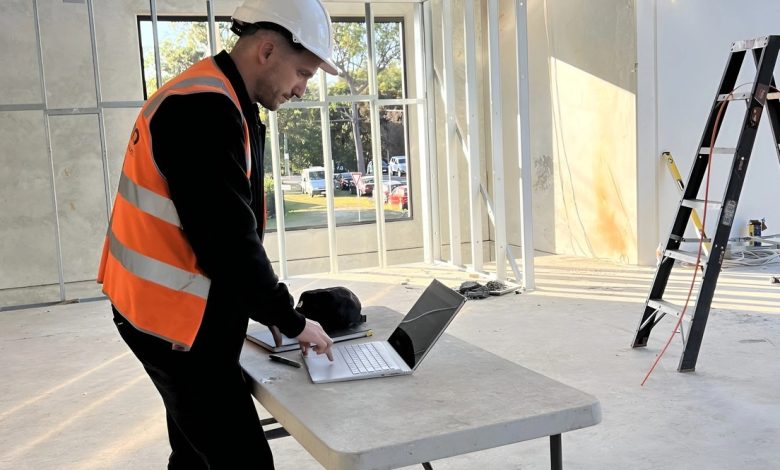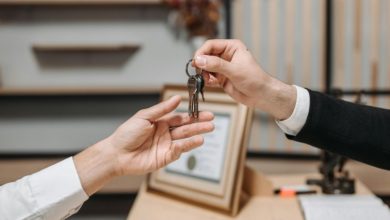Licensed Builders in NSW: What You Need to Know

If you’re planning to build or renovate in New South Wales, the builder you choose will determine the success – or failure – of a project. This is why Fair Trading NSW has strict regulations around who is allowed to work on a building legally. There is a reason that only licensed builders in NSW can head up construction projects over a certain value.
Licensing shields homeowners, guarantees safety and maintains high industry standards.
If you’re one of those who wonder what licensing entails, what requirements are for qualified and licensed builders in NSW, and why it matters for property owners, this is how the system works.
What is A Licensed Builder in NSW?
In NSW, an NSW Fair Trading builder’s licence is required. You need this licence if you want to contract, manage or advertise to do residential or commercial building work over $5,000 (including materials and labour).
A licensed builder in NSW at Builder Registration is a government-approved status that means a builder has undergone the required industry qualification and experience to safely and competently build in accordance with the Building Code of Australia and state licensed builders in NSW at Builder Registration.
Licences for Builders in NSW
Pursuing a license to build is not like filling out a form. Prospective employees must prove that they’re trained, experienced and fully capable of meeting professional standards. The main requirements include:
Formal Qualifications
To be registered, builders usually must have a Certificate IV in Building and Construction.
Higher Certificates and Diplomas in construction management may be available.
In most cases, builders must hold a Certificate IV in Building and Construction. More specialised qualifications may also be offered, such as a Diploma or degree in construction management.
Practical Experience
Candidates should have a few years of supervised experience in the construction profession.
Typically… some type of proof: references, a portfolio, or a list of projects.
Knowledge of Regulations
Builders ought to understand the National Construction Code (NCC), Australian Standards and workplace safety legislation.
Background Checks
NSW Fair Trading check the applicant’s financial history and legal status to ensure that, financially and legally, they are fit to run a business.
A builder will only be granted a licence if it satisfies such criteria.
Different Kinds Of Builder Licenses Available In NSW
All licences are not equal.
NSW has different types based on the work:
Building Licence – General builder (taken). This is for most residential and commercial work.
Trades Licence – e.g. Waterproofing, Concreting, Bricklaying.
Supervisor Certificate – Authorises an individual to supervise the work of construction but not to deal directly with clients.
This has made it easy for customers to match the project to their ideal pro.
Compliance Standards That All Licensed Builders Need To Follow
With great power comes great responsibility, or something like that.
Approved tradespeople in NSW need to follow:
Building Code of Australia – Preserving the safety and security of buildings, fire safety, energy control and universal access.
Work Health and Safety (WHS) Laws – Builders must ensure the safety of workplaces and employees. The Construction in NSW Home Building Act 1989 (NSW) contains information on consumer rights, contracts and warranties.
Advantages of Hiring Licensed Builders in NSW
For you as a homeowner or property investor, there is obviously a benefit to employing a licensed professional:
Legal Protection
Statutory warranties have to be given by licensed builders. She is required to cover major defects for six years and other defects for two years.
Quality Assurance
Tradespeople are all AUST ‘standard’ trained. This minimises the chance of unsafe or poor-quality products.
Financial Security
Under HBCF insurance, homeowners are covered if the builder is unable to complete the job because insolvency, death, or disappearance.
Dispute Resolution
If problems do occur, then NSW Fair Trading can intervene to help you resolve them. Now, at this level of accountability, unlicensed contractors are not held to.
Risks of Using Unlicensed Builders
The other problem is a lack of insurance and guarantees. Licensed builders in NSW are required to give statutory warranties and, in some cases, Home Building Compensation insurance. These safeguards protect you in case anything goes wrong or the builder can’t complete the job. You have no such safety net when passed in an unlicensed private sale. If flaws emerge, or something happens to the project, or it otherwise goes to the dogs, you bear the full cost of the remedy. There are also legal consequences. It is against NSW law to engage an unlicensed person for work over $5,000. If caught, you and the builder can be fined. In some circumstances, the council might even make you undo the unlicensed work if it doesn’t comply with the standards.
Unsafe or non-compliant construction.
Lack of insurance coverage.
No legal guarantees as to defects.
It might also mean more disputes or project delays.
Possible fines for the homeowner if illegal work is discovered.
In other words, you are risking your money and your property by hiring an unlicensed builder.
Industry perspectives: Construction in NSW today
Conclusion
That’s why the NSW licensing system is in place, in order to protect home owners, help ensure safety and foster good quality workmanship.
When you employ licensed builders in S, W, you’re not just doing the right thing by the law—you’re also ensuring that your project gets finished safely, legally and to the quality that your property deserves. Whether you’re constructing a new home, remodelling or extending, first check to see if they have a licence.




